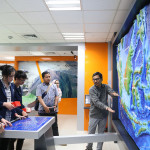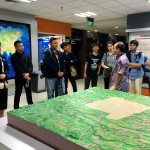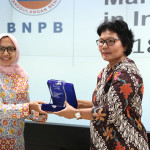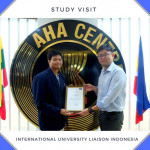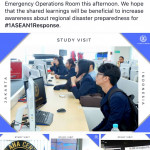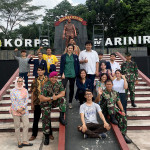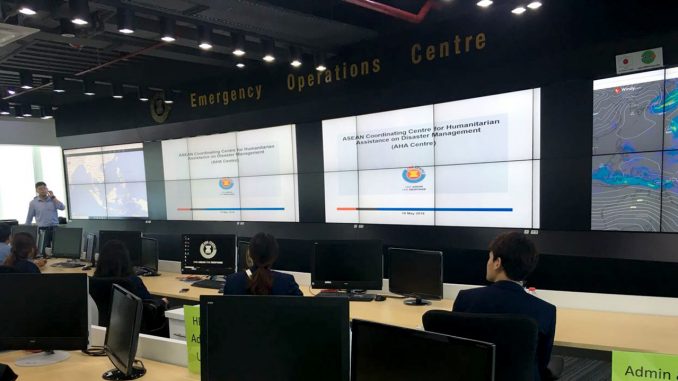
17 May 2018 – Field trips are undoubtedly an important element in the process of study—the fact is even more pronounced in non-hard science majors where the concept of “laboratory” may not be fittingly associated with a particular room. The IULI International Relations Department (INR) emphasizes the importance of expanding student’s horizons beyond theories. This has been consistently evident from semester to semester through the organization of course-related excursions. The aim of this activity is no other than to provide students with the best-learning-experience possible.
Throughout the even semester AY 2017/18 the Department held several excursions. Unlike previous INR-organized excursions this time it was designed differently: they were made as a series under one unifying theme: managing natural disasters, as cross-border characteristics of disasters have become an indispensable issue in the relations among states. As disasters can happen anywhere (places of learning not excluded), basic knowledge on this topic is—essentially—of everyone’s interest.
Students who enrolled in Ms. Fitriana Hapsari’s elective class “Disaster Management” had the opportunity to visit three institutions whose responsibilities are closely related to disaster. On April 20 they visited Indonesian Navy’s Marine Medical Battalion 2 (Batalyon Kesehatan Marinir 2). The battalion cdr. LTC dr. Jeffrey Agung explained to the visiting students about military readiness posture, response procedure, and civil-military coordination in the event of disaster. Besides being invited to inspect various facilities at the HQ, the students also visited “Hutan Mini”—a training facility for the marines.
On 16 May INR students resumed the series by visiting Indonesia’s primary disaster relief agency: Badan Nasional Penanggulangan Bencana (BNPB). In the building’s command center they were presented with an overview of disaster potentials in Indonesia, and its management at the national level. They also learned about interagency coordination to achieve integrated operation from relief to reconstruction.
The series concluded on the same day when the students visited the regional-level institution for disaster management: ASEAN Coordinating Centre for Humanitarian Assistance on Disaster Management (AHA Centre). Here they were presented with an even wider landscape: managing disaster relief across Southeast Asia. The presentation emphasized the importance of international coordination for effective disaster management.
IULI INR Department thanks Batalyon Kesehatan Marinir 2, BNPB, and AHA Centre for their warm welcome and insightful sharing. (SaK)


